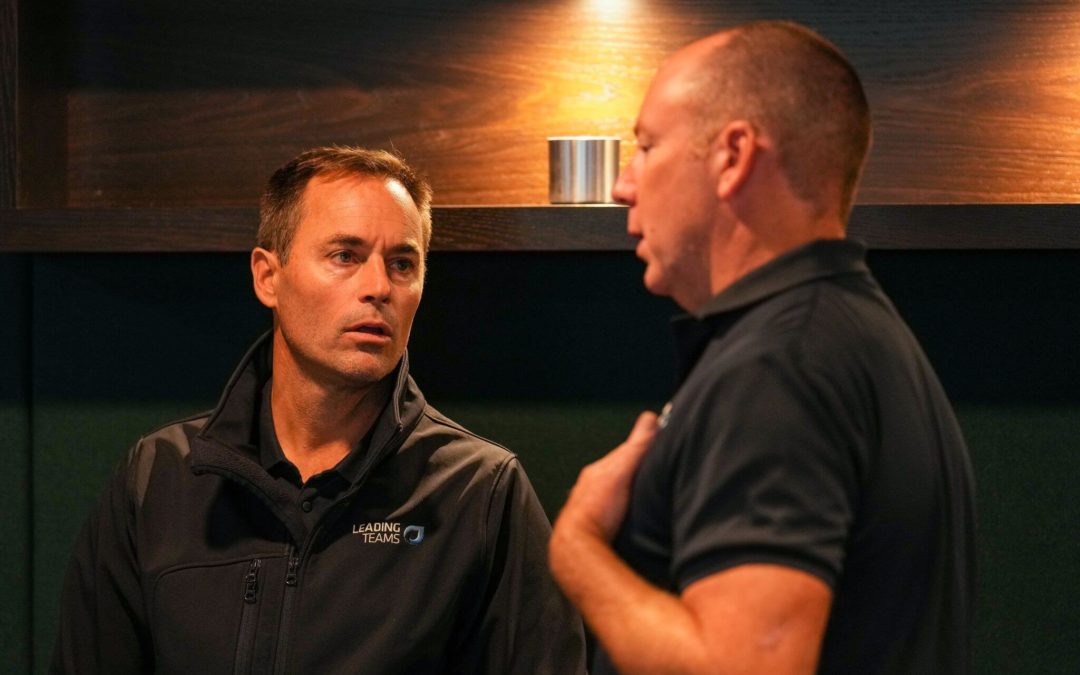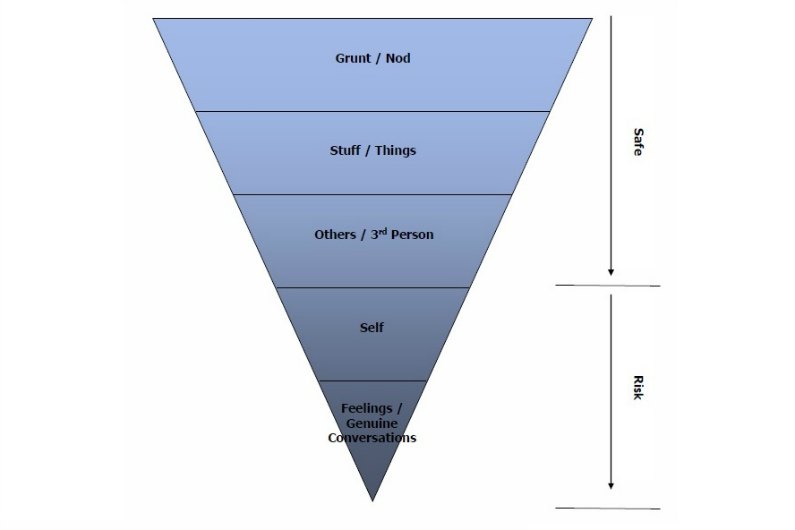Much has been made of the concept of having friends at work, and the importance of it – with Gallup defining ‘I have a best friend at work’ as one of the 12 key dimensions of great workgroups. See this from the Harvard Business Review, this from Forbes or this from Executive Style.
There’s lots of evidence that says that we are happier, more engaged, and better performing when we have pals around us. Understandable: as humans we have an innate need to belong. However we would like to remind you to ensure that friendships don’t come at the cost of the professional nature of your relationships.
You can say that you have a relationship when the other person’s wants and needs become as important as yours. There are various levels to the relationships you have at work; we categorise them into what we call the Relationship Pyramid.
‘Safe’ relationships
The top level, Grunt/Nod, refers to the kind of people you pass in the hallway with a slight incline of the head or a quick ‘how’re you going?’ (In transient interactions we all know that’s a statement, not a question.)
Underneath Grunt/Nod is Stuff/Things. This is where you might pass the time with some idle chit-chat – the weather, the footy, the roadworks outside the office.
Others / Third Person, is where there’s enough connection between the two of you to discuss individuals – likely others in the office or team, people you both know (the danger at this level is that talking about others can often descend into gossiping about them). Whilst the topics have moved on to people, you’re still yet to share any real, personal details about yourself.
The top three layers of the Relationship Pyramid are your ‘safe’ professional relationships – you’re not putting yourself out there or showing any vulnerability, so there’s no risk of you getting hurt.
Equally, though, there’s little chance of those relationships having the quality and strength to withstand a genuine conversation about performance – one of the key elements of our leadership model and vital to a culture of high performance.
‘Risky’ relationships
So where do you go from here? Well, now we’re getting to the pointy end. Fewer in number, but greater in quality. There is an inherent risk to these professional relationships – by sharing of yourself, you give others the tools with which to hurt you. However, if you manage them well, these relationships are by far the most productive you can have.
The fourth level of the pyramid is Self. At this point you’re happy to talk about yourself with your colleagues. You might share more intimate details about yourself and your family, or your work – projects you’re working on, challenges you’re having with a client… You become a more rounded individual in the eyes of your team because they can start to fill in the gaps of what makes you, you.
The ultimate level of the pyramid is Feelings. You’re happy to talk about your emotions, your motivations and desires with your co-workers. You know that you can share how you feel and it won’t be held against you. You are able to be vulnerable with them and in return receive support and understanding.
When you reach this point, your professional relationships are strong enough that you know you can say what needs to be said. We explain what we mean by genuine conversations in this article by facilitator Jake Bridges but the essence is this – all feedback is an opportunity to improve if the motive behind it is pure and the person giving the feedback believes it to be true at the time. If your relationships are strong you can say “you didn’t send me that report on time and I was disappointed,” or “I don’t think you were at your best in that meeting, how can I help you to improve?” and know that your comments will be taken in the productive manner they were intended. This feedback is the driving force behind a culture of high performance within your team.
Yes, having friends at work is important – the people you work with are often the reason you work there. But it’s important that you don’t allow friendship to get in the way of performance. If you invest time and energy into building your relationships, they’ll be able to withstand the kinds of conflict that can arise in work friendships. And you’ll be happier, healthier and more productive because of it.
- The Importance of Happiness in the Workplace by Kelly Vennus
- Checking In With Your Team by Simon Armstrong
- Purchase a copy of Team Work by Ray McLean






